 W
WViscount Allenby, of Megiddo and of Felixstowe in the County of Suffolk, is a title in the Peerage of the United Kingdom. It was created on 7 October 1919 for the prominent military commander Field Marshal Sir Edmund Allenby, with remainder, in default of male issue of his own, to his younger brother Captain Frederick Claude Hynman Allenby and his heirs male lawfully begotten. The first Viscount's son was killed in action on the Western Front in 1917.
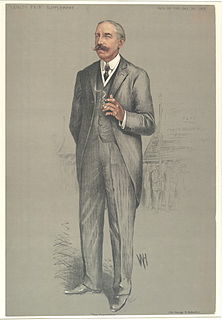 W
WGeorge Ranken Askwith, 1st Baron Askwith, KCB, KC, known as Sir George Askwith between 1911 and 1919, was an English lawyer, civil servant and industrial arbitrator.
 W
WEarl Beatty is a title in the Peerage of the United Kingdom. It was created in 1919 for the prominent naval commander Admiral of the Fleet Sir David Beatty. He was created Baron Beatty, of the North Sea and of Brooksby in the County of Leicester, and Viscount Borodale, of Wexford in the County of Wexford, at the same time, also in the Peerage of the United Kingdom. The latter title is used as a courtesy title for the Earl's eldest son and heir apparent. Lord Beatty was succeeded by his eldest son, the second Earl. He represented Peckham in the House of Commons as a Conservative from 1931 to 1936 and briefly served as Under-Secretary of State for Air in Winston Churchill's 1945 caretaker government. As of 2014 the titles are held by his eldest son, the third Earl, who succeeded in 1972.
 W
WEarl Beatty is a title in the Peerage of the United Kingdom. It was created in 1919 for the prominent naval commander Admiral of the Fleet Sir David Beatty. He was created Baron Beatty, of the North Sea and of Brooksby in the County of Leicester, and Viscount Borodale, of Wexford in the County of Wexford, at the same time, also in the Peerage of the United Kingdom. The latter title is used as a courtesy title for the Earl's eldest son and heir apparent. Lord Beatty was succeeded by his eldest son, the second Earl. He represented Peckham in the House of Commons as a Conservative from 1931 to 1936 and briefly served as Under-Secretary of State for Air in Winston Churchill's 1945 caretaker government. As of 2014 the titles are held by his eldest son, the third Earl, who succeeded in 1972.
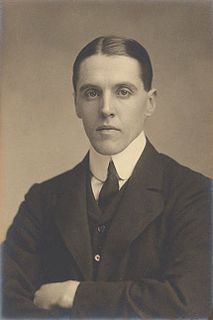 W
WEarl of Birkenhead was a title in the Peerage of the United Kingdom. It was created in 1922 for the noted lawyer and Conservative politician F. E. Smith, 1st Viscount Birkenhead. He was Solicitor-General in 1915, Attorney-General from 1915 to 1919 and Lord High Chancellor of Great Britain from 1919 to 1922. Smith had already been created a Baronet in the Baronetage of the United Kingdom in 1918, Baron Birkenhead, of Birkenhead in the County of Chester, in 1919, Viscount Birkenhead, of Birkenhead in the County of Chester, in 1921, and was made Viscount Furneaux, of Charlton in the County of Northampton, at the same time as he was given the earldom. The three peerages, like the earldom, were in the Peerage of the United Kingdom. Viscount Furneaux was used as the courtesy title by the heir apparent to the earldom; the title of this viscountcy derived from the maiden name of Lord Birkenhead's wife.
 W
WEarl Beatty is a title in the Peerage of the United Kingdom. It was created in 1919 for the prominent naval commander Admiral of the Fleet Sir David Beatty. He was created Baron Beatty, of the North Sea and of Brooksby in the County of Leicester, and Viscount Borodale, of Wexford in the County of Wexford, at the same time, also in the Peerage of the United Kingdom. The latter title is used as a courtesy title for the Earl's eldest son and heir apparent. Lord Beatty was succeeded by his eldest son, the second Earl. He represented Peckham in the House of Commons as a Conservative from 1931 to 1936 and briefly served as Under-Secretary of State for Air in Winston Churchill's 1945 caretaker government. As of 2014 the titles are held by his eldest son, the third Earl, who succeeded in 1972.
 W
WBaron Burnham, of Hall Barn in the Parish of Beaconsfield in the County of Buckingham, is a title in the Peerage of the United Kingdom. It was created on 31 July 1903 for the influential newspaper magnate Sir Edward Levy-Lawson, 1st Baronet, owner of The Daily Telegraph. He had already been created a Baronet, of Hall Barn in The Parish of Beaconsfield in the County of Buckingham and of Peterborough Court in the City of London, in the Baronetage of the United Kingdom on 13 October 1892. Levy-Lawson was the son of Joseph Moses Levy, who acquired The Daily Telegraph only months after its founding.
 W
WField Marshal Julian Hedworth George Byng, 1st Viscount Byng of Vimy, was a British Army officer who served as Governor General of Canada, the 12th since the Canadian Confederation.
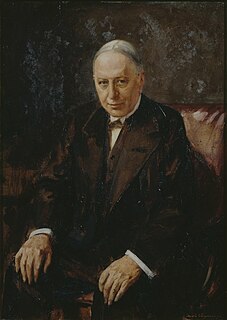 W
WRobert Chalmers, 1st Baron Chalmers, was a British civil servant, and a Pali and Buddhist scholar. In later life, he served as the Master of Peterhouse, Cambridge.
 W
WEarl Haig is a title in the peerage of the United Kingdom. It was created in 1919 for Field Marshal Sir Douglas Haig. During the First World War, he served as commander of the British Expeditionary Force on the Western Front in France and Belgium (1915–18). Haig was made Viscount Dawick and Baron Haig, of Bemersyde in the County of Berwick, at the same time he was given the earldom, also in the peerage of the United Kingdom The viscountcy of Dawick is used as a courtesy title by the Earl's son and heir apparent. As of 2016 the titles are held by the first earl's grandson, the third earl, who succeeded his father in 2009.
 W
WThomas Robert "Tommy" Dewar, 1st Baron Dewar was a Scottish whisky distiller who, along with his brother John Dewar, built their family label, Dewar's, into an international success. They blended their whisky to make it more appealing to the international palate and Dewar demonstrated particular skills in marketing, travelling the world to find new markets and promote his product, exploiting romantic images of Scotland and tartan in his advertising.
 W
WEarl of Iveagh is a title in the Peerage of the United Kingdom. It was created in 1919 for the businessman and philanthropist Edward Guinness, 1st Viscount Iveagh. He was the third son of Sir Benjamin Guinness, 1st Baronet, of Ashford, and the great-grandson of Arthur Guinness, the founder of the Guinness brewery.
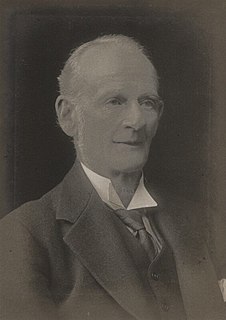 W
WRowland Edmund Prothero, 1st Baron Ernle, was a British agricultural expert, administrator, journalist, author and Conservative politician. He played first-class cricket between 1875 and 1883.
 W
WViscount Finlay, of Nairn in the County of Nairn, was a title in the Peerage of the United Kingdom. It was created on 27 March 1919 for the lawyer and politician Robert Finlay, 1st Baron Finlay. He had already been created Baron Finlay, of Nairn in the County of Nairn, on his appointment as Lord Chancellor in 1916. He was succeeded by his only son, the second Viscount, who was a Lord Justice of Appeal. Both titles became extinct on his death in 1945.
 W
WHenry William Forster, 1st Baron Forster, was a British politician who served as the seventh Governor-General of Australia, in office from 1920 to 1925. He had previously been a government minister under Arthur Balfour, H. H. Asquith, and David Lloyd George.
 W
WEarl Haig is a title in the peerage of the United Kingdom. It was created in 1919 for Field Marshal Sir Douglas Haig. During the First World War, he served as commander of the British Expeditionary Force on the Western Front in France and Belgium (1915–18). Haig was made Viscount Dawick and Baron Haig, of Bemersyde in the County of Berwick, at the same time he was given the earldom, also in the peerage of the United Kingdom The viscountcy of Dawick is used as a courtesy title by the Earl's son and heir apparent. As of 2016 the titles are held by the first earl's grandson, the third earl, who succeeded his father in 2009.
 W
WEarl Haig is a title in the peerage of the United Kingdom. It was created in 1919 for Field Marshal Sir Douglas Haig. During the First World War, he served as commander of the British Expeditionary Force on the Western Front in France and Belgium (1915–18). Haig was made Viscount Dawick and Baron Haig, of Bemersyde in the County of Berwick, at the same time he was given the earldom, also in the peerage of the United Kingdom The viscountcy of Dawick is used as a courtesy title by the Earl's son and heir apparent. As of 2016 the titles are held by the first earl's grandson, the third earl, who succeeded his father in 2009.
 W
WGeneral Henry Sinclair Horne, 1st Baron Horne, was a military officer in the British Army, most notable for his generalship during the First World War. He was the only British artillery officer to command an army in the war.
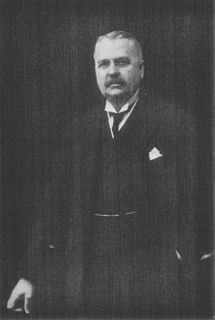 W
WBaron Inverforth, of Southgate in the County of Middlesex, is a title in the Peerage of the United Kingdom. It was created in 1919 for the Scottish shipping magnate Andrew Weir. He was head of the firm of Andrew Weir & Co, shipowners, and also served as Minister of Munitions from 1919 to 1921. As of 2014 the title is held by his great-grandson, the fourth Baron, who succeeded his father in 1982.
 W
WEarl of Iveagh is a title in the Peerage of the United Kingdom. It was created in 1919 for the businessman and philanthropist Edward Guinness, 1st Viscount Iveagh. He was the third son of Sir Benjamin Guinness, 1st Baronet, of Ashford, and the great-grandson of Arthur Guinness, the founder of the Guinness brewery.
 W
WViscount Plumer, of Messines and of Bilton in the County of York, was a title in the Peerage of the United Kingdom. It was created on 3 June 1929 for the soldier and colonial official Field Marshal Herbert Plumer, 1st Baron Plumer. He had already been created Baron Plumer, of Messines and of Bilton in the County of York, on 18 October 1919, also in the Peerage of the United Kingdom. Both titles became extinct after the death of his son and successor, the second Viscount, in 1944.
 W
WThe Rawlinson Baronetcy, of North Walsham in the County of Norfolk, is a title in the Baronetage of the United Kingdom. It was created on 7 February 1891 for the orientalist, archaeologist and politician Henry Rawlinson. His son, the second Baronet, was a distinguished soldier. On 6 October 1919 he was raised to the Peerage of the United Kingdom as Baron Rawlinson, of Trent in the County of Dorset. On his death on 26 March 1925 the barony became extinct, while the baronetcy passed to his younger brother, the third Baronet.
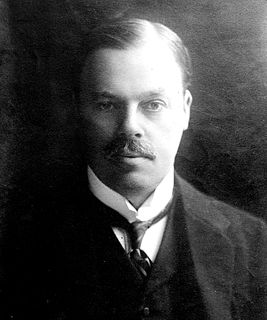 W
WViscount Rothermere, of Hemsted in the county of Kent, is a title in the Peerage of the United Kingdom. It was created in 1919 for the press lord Harold Harmsworth, 1st Baron Harmsworth. He had already been created a baronet, of Horsey in the County of Norfolk, on 14 July 1910, and Baron Rothermere, of Hemsted in the County of Kent, in 1914. Every holder of the titles has served as chairman of Daily Mail and General Trust plc. As of 2016 the titles are held by the first Viscount's great-grandson, the fourth Viscount, who succeeded his father in 1998.
 W
WBaron Russell of Liverpool, of Liverpool in the County Palatine of Lancaster, is a title in the Peerage of the United Kingdom. It was created in 1919 for Sir Edward Russell. He served as editor of the Liverpool Daily Post for almost fifty years and also briefly represented Glasgow Bridgeton in the House of Commons as a Liberal.
 W
WBaron Swinfen, of Chertsey in the County of Surrey, is a title in the Peerage of the United Kingdom. It was created in 1919 for the lawyer and judge Sir Charles Swinfen Eady upon his retirement as Master of the Rolls. He died only two weeks after his elevation to the peerage and was succeeded by his only son, the second Baron. As of 2014 the title is held by the latter's eldest son, the third Baron, who succeeded in 1977. He is one of the ninety elected hereditary peers that remain in the House of Lords after the passing of the House of Lords Act 1999, and sits on the Conservative benches.
 W
WWilliam Hall Walker, 1st Baron Wavertree was a British businessman, Conservative Party politician, art collector, and an important figure in thoroughbred racehorse breeding.
 W
WAdmiral of the Fleet Rosslyn Erskine Wemyss, 1st Baron Wester Wemyss,, known as Sir Rosslyn Wemyss between 1916 and 1919, was a Royal Navy officer. During the First World War he served as commander of the 12th Cruiser Squadron and then as Governor of Moudros before leading the British landings at Cape Helles and at Suvla Bay during the Gallipoli campaign. He went on to be Commander of the East Indies & Egyptian Squadron in January 1916 and then First Sea Lord in December 1917, in which role he encouraged Admiral Roger Keyes, Commander of the Dover Patrol, to undertake more vigorous operations in the Channel, ultimately leading to the launch of the Zeebrugge Raid in April 1918.